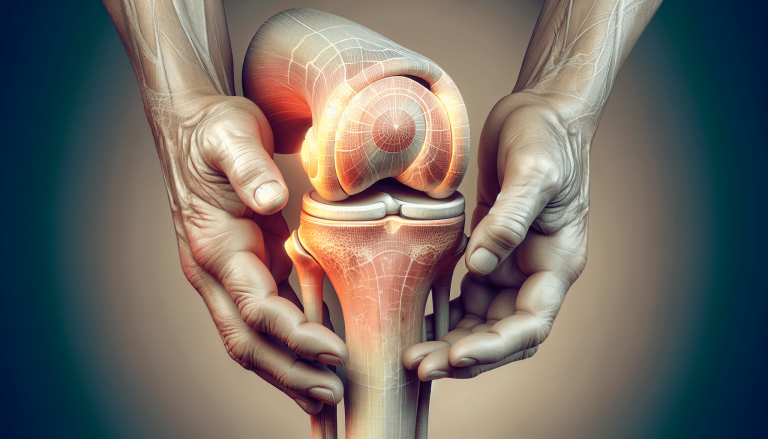What Are The 8 Keys To Heart Health?
Welcome to your ultimate guide to achieving a heart-healthy lifestyle! In this article, “What Are The 8 Keys To Heart Health?”, you’ll discover the essential steps you can take to keep your heart in top condition. From smart dietary choices to staying active and managing stress, we’ll delve into the eight crucial practices that can help you maintain a robust and healthy heart. Embrace these tips, and you’ll be well on your way to enjoying a life filled with vitality and well-being. Have you ever wondered what the secret is to maintaining a healthy heart? Considering that heart disease remains the leading cause of death worldwide, understanding how to care for your heart is essential to a long and healthy life. But don’t worry – achieving heart health is entirely within your reach! By focusing on some key lifestyle components, you can significantly improve your heart health and overall well-being. In this article, you’ll discover the 8 keys to heart health, each providing you with practical steps to a healthier heart.
1. Maintain a Balanced Diet
Your diet plays a crucial role in the health of your heart. Consuming a variety of nutrient-rich foods can strengthen your heart and reduce the risk of heart disease.
Eat More Fruits and Vegetables
Fruits and vegetables are packed with essential vitamins, minerals, and antioxidants. Aim for at least 5-7 servings of a variety of colorful fruits and veggies daily.
Benefits of Fruits and Vegetables
| Nutrient | Benefits |
|---|---|
| Vitamins and Minerals | Supports overall bodily function and heart health |
| Fiber | Helps in lowering cholesterol |
| Antioxidants | Fights inflammation and oxidative stress |
Choose Whole Grains
Whole grains are a great source of fiber and other important nutrients that help regulate blood pressure and improve heart health. Opt for whole grains like brown rice, oatmeal, whole wheat bread, and quinoa.
Limit Saturated and Trans Fats
Reducing your intake of saturated and trans fats can decrease your risk of heart disease. Instead, choose healthy fats found in olive oil, avocados, and nuts.
2. Stay Physically Active
Regular physical activity strengthens your heart and improves circulation, helping to lower your cholesterol and blood pressure levels.
Types of Physical Activities
Incorporate various types of physical activities into your routine to maximize heart health benefits.
Aerobic Exercises
| Exercise | Benefits |
|---|---|
| Walking | Improves circulation and heart rate |
| Swimming | Enhances cardiovascular health and endurance |
| Cycling | Strengthens heart and lungs |
Strength Training
| Exercise | Benefits |
|---|---|
| Weight Lifting | Builds muscle, supports metabolism |
| Resistance Bands | Increases strength and cardiovascular function |
| Bodyweight Exercises | Improves overall physical coordination |
Aim for Consistency
Aim for at least 150 minutes of moderate-intensity or 75 minutes of high-intensity exercise weekly, as recommended by many health organizations.

3. Maintain a Healthy Weight
Keeping your weight within a healthy range is essential for heart health. Excess body weight can significantly increase the risk of heart disease, high blood pressure, and diabetes.
Calculate Your BMI
Your body mass index (BMI) can help you determine if you’re within a healthy weight range.
BMI Categories
| Category | BMI |
|---|---|
| Underweight | Below 18.5 |
| Normal Weight | 18.5–24.9 |
| Overweight | 25–29.9 |
| Obesity | 30 and above |
Monitor Portion Sizes
Controlling portion sizes helps you manage your calorie intake and maintain a healthy weight. Focus on eating smaller portions of nutrient-dense foods rather than large portions of high-calorie, low-nutrient options.
4. Manage Stress
Chronic stress is detrimental to your heart health. It can raise your blood pressure and lead to unhealthy habits like overeating or smoking.
Practice Relaxation Techniques
Engaging in relaxation techniques can significantly reduce stress and improve your heart health.
Relaxation Methods
| Method | Benefits |
|---|---|
| Meditation | Reduces stress, lowers heart rate |
| Yoga | Enhances flexibility, lowers blood pressure |
| Deep Breathing | Calms the nervous system, reduces anxiety |
Seek Support
Sometimes, talking to a friend, family member, or mental health professional can help you manage stress more effectively.

5. Avoid Tobacco Smoke
Smoking is one of the most significant risk factors for heart disease. Quitting smoking can vastly improve both your heart and overall health.
Understand the Risks
Comprehending the risks of smoking can motivate you to cease this harmful habit.
Hazards of Smoking
| Health Risk | Description |
|---|---|
| Increased Blood Pressure | Smoking narrows blood vessels, increasing BP |
| Risk of Clotting | Promotes plaque buildup, clot formation |
| Lowered Good Cholesterol | Reduces HDL levels, which are protective |
Strategies to Quit
Several strategies can assist you in your journey to quit smoking.
Quit Smoking Tips
| Tip | Description |
|---|---|
| Support Groups | Joining groups provides encouragement |
| Nicotine Replacement | Use patches, gum for gradual nicotine withdrawal |
| Professional Help | Seek guidance from healthcare providers |
6. Limit Alcohol Consumption
While moderate alcohol consumption might offer some heart benefits, excessive drinking can lead to numerous health problems, including heart disease.
Guidelines for Alcohol Intake
Stick to recommended guidelines to enjoy the potential benefits without the risks.
Alcohol Consumption Limits
| Group | Limits |
|---|---|
| Men | Up to 1-2 drinks per day |
| Women | Up to 1 drink per day |
Risks of Excessive Alcohol
Understanding the dangers of excessive alcohol consumption can help you moderate your drinking.
Alcohol-related Risks
| Health Risk | Description |
|---|---|
| High Blood Pressure | Elevates BP, contributing to heart disease |
| Cardiomyopathy | Weakens heart muscle, leading to failure |
| Irregular Heartbeat | Disturbs normal heart rhythm |
7. Monitor Your Health
Regular health check-ups can aid in detecting potential heart problems early, making them easier to manage and treat.
Keep Track of Key Health Metrics
Monitoring essential health metrics can help you stay informed about your heart health.
Key Health Metrics
| Metric | Target Range |
|---|---|
| Blood Pressure | Below 120/80 mm Hg |
| Cholesterol Levels | LDL below 100 mg/dL, HDL above 60 mg/dL |
| Blood Sugar Levels | Fasting glucose below 100 mg/dL |
Regular Check-ups
Scheduling regular appointments with your healthcare provider can help you catch any issues early on and manage risk factors effectively.
Health Screenings
| Screening | Frequency |
|---|---|
| Blood Pressure | At least once a year |
| Cholesterol Levels | Every 4-6 years, more often if needed |
| Blood Sugar Levels | Every 3 years, more often if at risk |
8. Get Enough Sleep
Sleep is essential for heart health. Poor sleep quality can lead to problems like high blood pressure, obesity, and diabetes, which are risk factors for heart disease.
Importance of Quality Sleep
Ensuring you get enough quality sleep can have a significant positive impact on your heart health.
Benefits of Sleep
| Benefit | Description |
|---|---|
| Blood Pressure Regulation | Sleep helps keep BP levels in check |
| Stress Reduction | Adequate rest lowers stress hormones |
| Weight Management | Promotes hormonal balance and metabolism |
Tips for Better Sleep
Adopting healthy sleep habits can improve your sleep quality and duration.
Healthy Sleep Practices
| Tip | Description |
|---|---|
| Stick to a Schedule | Go to bed and wake up at the same time daily |
| Create a Relaxing Routine | Engage in calming activities before bed |
| Limit Screen Time | Reduce exposure to screens before bedtime |
Conclusion
Maintaining heart health doesn’t have to be complicated. By focusing on these 8 keys – a balanced diet, regular physical activity, healthy weight, stress management, avoiding tobacco, limiting alcohol, monitoring health metrics, and ensuring quality sleep – you can significantly improve your heart health and overall well-being. Your heart is one of the most vital organs in your body, and taking these steps will help ensure it stays strong and healthy for years to come.
Remember, it’s never too late to start making healthier choices. Start small, make gradual changes, and you’ll soon notice the difference in how you feel and your overall health. Here’s to a healthier heart and a happier you!
Additional Resources

Do you eat the three “starving heart” health foods?
Is Your “Starving Heart” The Root Cause Of Your Climbing Blood Pressure & Cholesterol?
Click here for a complete explanation video and the science-based solution to a healthy heart. HealthyHeart Support+ contains a proprietary blend of ingredients that all have been the subject of intensive scientific research.







